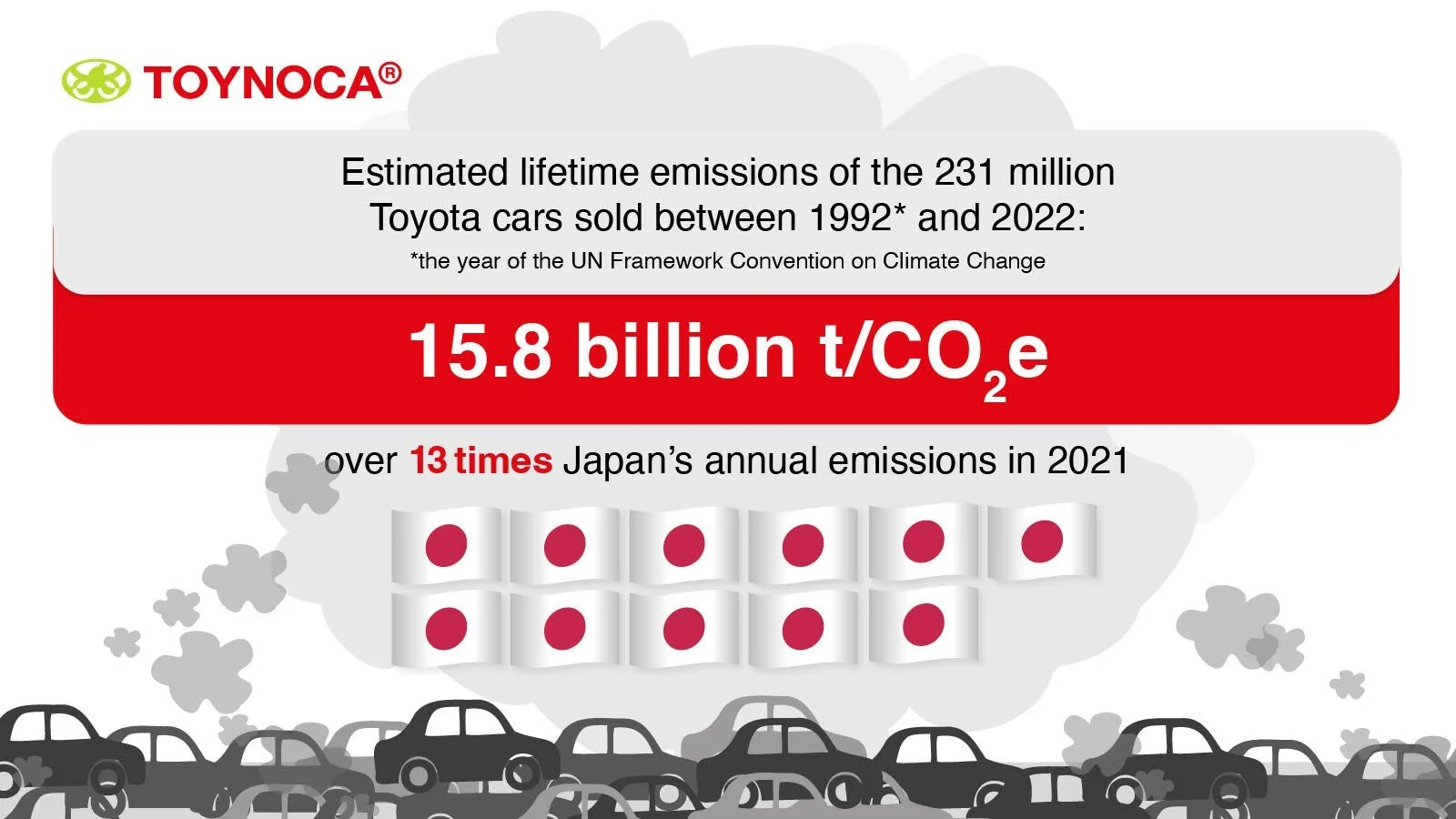Olympic smoke rings: new research finds that just three olympic sponsorships create more emissions than eight coal plants running for a year
Our new report, Olympic Smoke Rings has found that sponsorship deals between the 2024 Paris Olympic and Paralympics Games and just three polluting companies will generate 33.6 million tonnes of CO2 equivalent. The deals with Air France, global car manufacturer Toyota, and steel giant ArcelorMittal will create more emissions than eight coal plants running for an entire year.
These highly polluting sponsorship deals actively undermine the wider sustainability efforts of the International Olympic Committee (IOC), who previously stated that July’s tournament would be the “greenest ever games”. The report uses a methodology that combines total emissions, total sponsorship spend and revenue of the sponsoring companies that assumes that each sponsorship generates a baseline level of return, putting numbers to the very real issues environmental campaigners have highlighted for years.
These polluting sponsors also come with dubious environmental track records and a history of publicly pushing back on more ambitious climate policy and lobbying against climate solutions, all of which are at odds with the ambitions and values of the Olympic and Paralympic Games.
Toyota boasts annual CO2 emissions higher than most oil and gas companies, including fossil fuel giants such as BP. Global steel giant, ArcelorMittal, was responsible for 114.3 million tonnes of CO2 equivalent in 2022, comparable to Belgium. Air France continues to lobby against higher taxes or decarbonisation initiatives within the aviation sector, including fighting the proposed flight cap at Schipol Airport and taking legal action against it.
Just last month, UN Secretary-General António Guterres called upon the world to stop promoting its own destruction and introduce a tobacco-style ban on fossil fuel adverts. Sport is a sector with close ties to high-carbon companies and petro-states, but some sports organisations are now actively rejecting deals with polluters for fear of reputational damage and backlash from fans. In 2022, Tennis Australia was pushed by a grassroots campaign to drop oil and gas major Santos as a sponsor after one year of the multi-year deal. In early 2023, the English Rugby Football Union (RFU), turned down a five-year sponsorship agreement with oil and gas giant ExxonMobil.
These decisions from other major sporting bodies show that another way is possible. Without swift climate action, the future of the Olympic and Paralympic Games are under threat. From extreme heat to deadly floods, the infrastructure of the Games will buckle under the impacts of global heating and its global scope will be radically reduced.
But this future is not locked in - it can be changed. The Games could be a powerful vehicle for ambitious action on climate change, using the universal language of sport to transcend borders, languages, and geopolitics. The Olympics and Paralympics could be vital in humanity’s efforts to stop climate catastrophe. It’s time for the IOC to cut all ties with polluting sponsors that are undermining the future of the Games.


